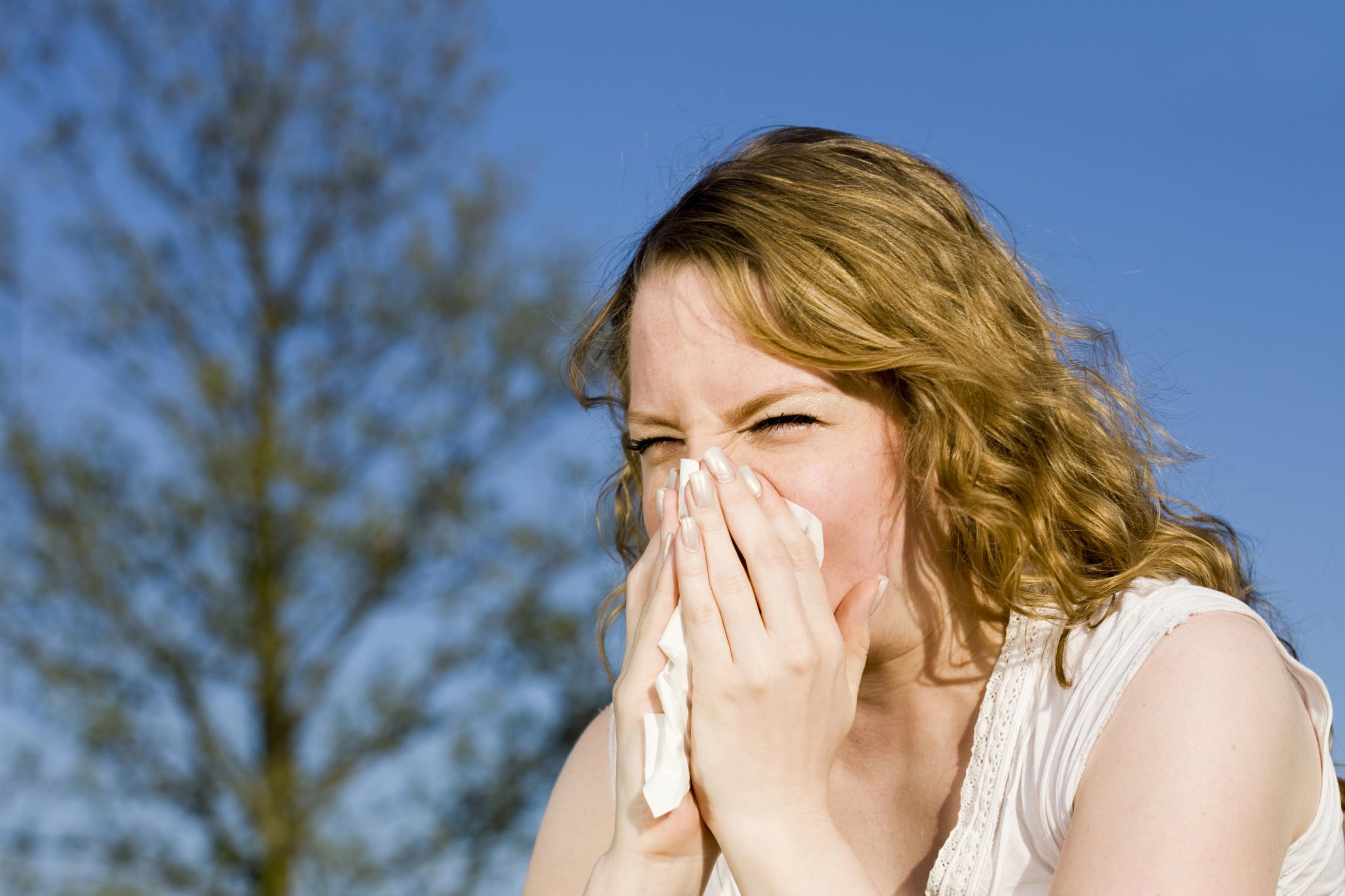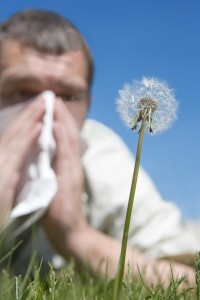There’s pollen-ty going around
Hay fever is on the rise, but that doesn’t have to mean a summer of misery. Ahead of Allergy Awareness Week, Abi Jackson reveals how to keep sneezy symptoms at bay
Spring is well and truly under way. Daffodils are in bloom, lambs are frolicking – oh, and the sniffles and itchy eyes are doing the rounds.
Allergies are common, affecting millions of adults and children in the UK, and as the headlines often remind us, the numbers are rising. But the severity of people’s reactions varies hugely.
For some, thankfully, allergies are just a mild irritation, while for others, they can be extremely debilitating and even potentially life-threatening.
Hay fever is one of the UK’s most common allergies, believed to affect more than 10 million people, and diagnosed cases have trebled in the past two decades.
It’s an allergic reaction to pollen – be it tree, weed, grass or shrub pollens, which the body mistakenly identifies as a threat and, in response, the immune system cranks into over-drive and chucks a load of chemicals at it.
This is the very basic concept for all allergies.
In the case of hay fever, the resulting symptoms most often involve inflammation of the nose – sneezing, runny, drippy or blocked and itchy, which is known as allergic rhinitis, and the eyes – red, sore and watery, known as allergic conjunctivitis.
These symptoms can result from sensitivity to other allergens too, like dust mites, meaning they’re therefore problematic all year round. And likewise, people with other allergies, like asthma or eczema, might find that pollen triggers symptoms of these conditions too.
But for many Brits, it’s a seasonal problem, with symptoms flaring up as the pollen counts soar.
“Hay fever is one of those things that’s quite badly documented, because so many people don’t actually go to their doctor about it, they just sort it out themselves, especially at the milder end of the scale,” says Lindsey McManus, Allergy UK’s deputy CEO.
Though exact causes for the rise in hay fever aren’t known, there are a number of theories, with environmental and climate changes believed to play a part.
A recent report commissioned by Sanofi on behalf of Opticrom Hayfever Eye Drops, predicts that hay fever rates in the UK will more than double to 31.8 million by 2030, due to climate changes bringing about longer and more potent pollen seasons.
As McManus points out though, there’s still a lot of research to be done into why some people’s immune systems behave differently, and whether it might be possible for allergic responses to be ‘switched off’. There are no cures presently, though various treatments can reduce and soothe symptoms and lifestyle changes can make a big difference.
“In terms of hay fever, we have seen an increase, but as with all allergies, we don’t fully understand it,” notes McManus.
It’s likely a variety of factors play a part; environmental, diet, lifestyle. “And we all live in insulated little boxes these days,” McManus adds. “We don’t get exposed to the same kind of things that actually programme our immune systems, as we did some 100 years ago.”
So how do you know if you actually have hay fever as opposed to, say, a cold that happens to strike during spring?
“With a cold, you usually tend to get a temperature and feel very unwell for a couple of days. Although hay fever can make you feel really lousy and miserable, you don’t get the same spike in feeling unwell as you do with a viral infection,” says McManus. “And an infection would go after a week or two.”
Hay fever symptoms can last for as long as the pollen you’re allergic to is present.
It’s unusual, though not impossible, to be allergic to all the different types, so exactly when symptoms flare up can vary.
“Allergens that cause hay fever are effective right the way through summer, but the first ones, which tend to be tree pollens, come out quite early – end of March, start of April,” says McManus. “If your symptoms start a bit later in May, it’s probably because of grass pollen, and as we go through the summer, we see things like weeds and nettles coming into play, and mould spores.”
Lots of hay fever sufferers self-diagnose, but the only way to know for sure whether you’re allergic to a particular allergen is by being referred by your GP to a specialist for clinical tests.
But, this doesn’t mean that everybody whose nose and eyes flare up in spring or summer needs to rush to their doctor.
Over-the-counter treatments can be very effective, and taking a few precautionary measures can make a world of difference too.
“Hay fever really varies from person to person,” says McManus. “Some get it very mildly and symptoms may only last three or four weeks, and they can manage on a one-a-day antihistamine. Practical things, like nasal balm, might be all some people need, while if your symptoms are more in the mild to moderate bracket, you might find eye drops and a nasal spray helps.
“Some people do find it really affects their working life, or school, and makes summer really quite miserable,” she adds. “It’s at that point that you should seek further help and see your GP.
“For people with very severe hay fever and other allergies, there may be stronger treatments that might be an option for them, such as immunotherapy.”
Ensuring that you use treatments properly is vital.
“The trouble is, sometimes people don’t take these products properly, and this is something we’re highlighting this Allergy Awareness Week,” says McManus. “Often if people take antihistamines, they’ll wait until it’s a really hot, sunny day and they think, ‘Oh, my hay fever will be bad today, I’ll take a tablet’, but you should really take it right the way through the season, when whichever pollen you’re sensitive to starts.
“When using a steroid nasal spray, you should take that a couple of weeks before your symptoms usually start,” she adds, “so that the nasal passage can be prepared.
“And don’t just spray it right up your nose, you actually spray it quite gently at the outside of your nose, because that’s the area that’s affected by the pollen.
“So it’s correct use of medication and using it consistently – don’t skip a day just because it’s raining, for instance.”
What allergies do you suffer from?
Latest posts by Sally - Silversurfer's Editor (see all)
- Should smacking a child be banned in England and Northern Ireland? - April 17, 2024
- Enjoy the best of the UK on a Shearings coach holiday - April 17, 2024
- Blueberry & Lemon Curd Bread and Butter Pudding - April 16, 2024
- Navigating the World with What3Words: A Lifeline for Older Generations - April 15, 2024
- Parsley Box – Bringing you time for the things you love! - April 12, 2024






















